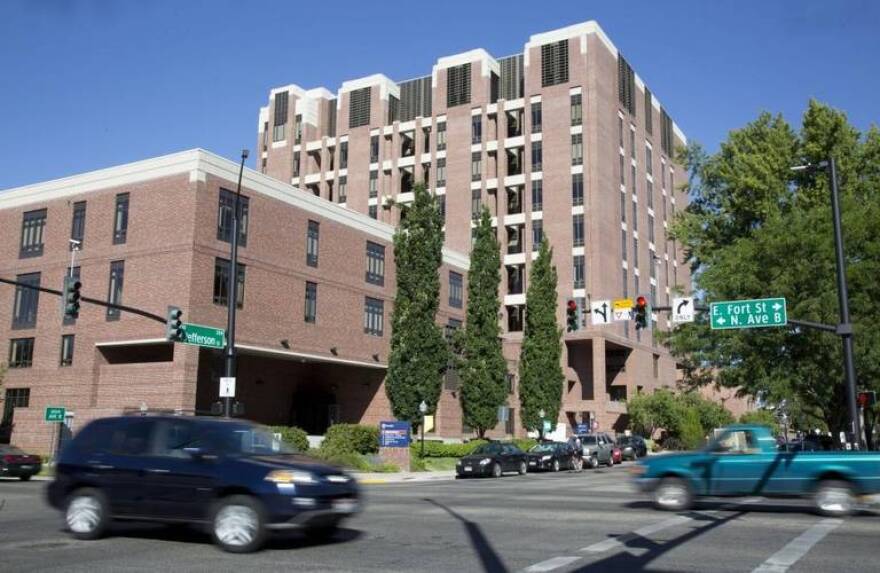People in Idaho facing lingering health issues after acute COVID-19 infections have a new place to turn for medical care.
St. Luke’s Health System will open a COVID recovery clinic in Boise Monday dedicated to evaluating and providing follow-up care for COVID-19 'long-haulers.'
Patients need a referral to access the clinic, and can see medical providers in-person or virtually. They’ll start with a COVID recovery plan from a primary care physician, said Public Relations Coordinator Taylor Reeves.
“Then, a separate patient case review and input study will be done by a multidisciplinary team of specialists from a variety of areas, like pulmonary, neurology, behavioral health, rehab medicine and whatever else they deem necessary,” Reeves said.
The new St. Luke’s clinic opens just over a month after Idaho’s other major health system closed its own post-COVID clinic.
Saint Alphonsus started a special center for COVID long-haulers last fall, but shut it down at the end of June this year because fewer and fewer patients were coming in.
Dr. Louis Roser, who was the medical director for the Saint Alphonsus long-COVID clinic on top of his family medicine practice, said the health system opened it for the in-between COVID-19 patients who weren’t quite sick enough for hospital care, but whose health issues needed to be closely monitored.
Then, it morphed into a regular medical clinic, as more and more patients were coming in with chronic medical issues due to COVID-19, ranging from trouble breathing to brain fogginess.
Travis Smith of Rigby, who runs a Facebook group for COVID long-haulers in Idaho with more than 900 members, said not everyone has been accessing medical care at a COVID-specific center, but the clinics bring long-haulers some confidence that their ailments will be taken seriously.
“If they have that person they feel comfortable to turn to or talk to, especially on a hard day when things might just be a little darker, I think that can really go a long way,” he said.
Smith and members of the Facebook group have been told their own post-COVID health issues are all in their heads. So when Smith was being referred to a cardiologist for tachycardia, he made sure to ask them if they were familiar with what COVID-19 does to the cardiovascular system. It can be a labor-intensive and emotional process, especially in rural Idaho, where there aren’t always as many options to “shop around” for the right provider, he said.
Smith said some group members have been going to the new long-COVID clinic at the University of Utah hospital, which, as of now, offers telehealth options.
And overall, he’s hopeful that long-COVID conditions are getting more attention from the medical community.
Dr. Roser from Saint Alphonsus said as emergency room doctors learned more about treating COVID-19 patients who were really sick in the hospital, it allowed the medical community to devote more attention to trying to figure out long-COVID.
He said since the Saint Al’s clinic opened last fall, there has been some progress on understanding the long-term symptoms, but not much. There still aren’t many peer-reviewed, placebo-controlled trials — “the gold standard” — for how long-haulers should be treated, he said, but there is lots of research underway.
Patients can still see Saint Alphonsus physicians for long-haul symptoms, and Roser suggests patients start the process with their regular primary care provider.
Find reporter Rachel Cohen on Twitter @racheld_cohen
Copyright 2021 Boise State Public Radio



